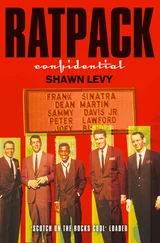“And so now,” the prophet says, smiling and opening his arms, “let’s dance.”
The crowd erupts in applause. Ruth watches as the man from the cornfield stands. Handsome. Righteous. New and unfamiliar. He looks at her and nods, grandly. She realizes what’s going on inside of her: She does not want to stare at him. She does not want to watch him. She does not want to dance with him or talk to him. She wants to touch him. She wants to touch every part of him.
• • •
At the dance, her father approaches with Brother Billy. Ruth considers saying that she is sick. She considers saying she sprained her ankle picking corn. She considers saying she does not know how to dance. That she does not know what dancing even is. Here they come, her father leading the way, Brother Billy as an applicant or supplicant, all of it outside of her control, all of it a dance in itself, the steps already laid out, invented and drawn up by others, by her father and Brother Billy, yes, but also by others long before her who wrote the music and named the steps, all of it beyond her.
“Good evening, Ruth,” Brother Billy says.
“Good evening, Brother Adler.”
“I was hoping I might request the pleasure of the next dance.”
Over her father’s shoulder, several yards away, stands the tall young man from the cornfield. Ruth thinks he might be looking at her. He looms above the others.
“Little sister?” her father asks.
“I’m afraid,” she starts, but no words come, and she clears her throat and starts again. “I’m afraid that I have already promised the next dance to someone else.”
“Oh?” Brother Billy asks, glancing at her father, who narrows his eyes in puzzlement, and asks, “To whom have you promised the next dance?”
Ruth points to the tall young man. They turn to look at him, and her father says, “Ah. The new man. The convert.”
“Brother Harder?” Brother Billy asks, and her father nods.
Brother Billy tips his head, and says, “Perhaps the next dance, then?”
“Unfortunately,” Ruth says, “all of my dances have been spoken for tonight. Every one of them.”
October 20, 1975 ELKO, NEVADA
Loretta wakes, parched, no sense of time. It might be any time. The back of Boyd’s head is six inches away, a wing of shiny black hair. Across the gap between the beds are the two lumps that are Jason and that motorcycle guy. Shades drawn. Light slips through an open slice of curtain. The room is ripe with body smell. A disorienting ache pulses from her head down her body, and acid sears the back of her throat. She feels like she must stay perfectly still. Something cloudy hangs between her and whatever brought her to this moment — something that does not quite blot out memory, but presses it out of the immediate range.
She gets up and pees. The sound embarrasses her. She sits on the toilet for so long, face propped in her hands, that her legs fall asleep. When she stands and flushes the toilet thunderously, she has to wait for the blood to return to her legs, tingling and prickling, before she can walk. When she does, Evel Knievel is sitting up, scratching the back of his neck, and he says, “Mornin’, darlin’,” and Loretta looks away from him and mutters, “Darlin’.”
Every decision has been wrong. Last night she had thought he was so cool. So interesting. And then with Boyd. Every decision. Wrong. Every bit of her life must come off of her, must be stripped like worn paint.
She showers. Stays in the hot water until it cools. When she emerges, Jason is saying something she can’t quite make out and Boyd snorts, says, “Oh, please.” Everyone is awake. Evel Knievel is stepping into his jeans. Boyd and Jason are both sitting up, bedcovers piled around them. Jason looks as though he has been shot or stabbed. He looks at Loretta and then back to Boyd, who is gazing grumpily into his lap.
“If you boys are gonna be friends,” Evel Knievel says, standing there holding his shirt in front of him, “you’re going to have to learn to keep the ladies in their place.”
Jason ignores him. “I’m the one who let you come along in the first place, you fucker,” he whispers. “You came to my birthdays. Grandpa’s funeral. You were my goddamn motherfucking safety buddy.”
Boyd stares into the sheets.
Jason sputters, “It’s my car !”
Boyd nods wearily. “Yeah. I know. Your dad’s car.”
Loretta wishes for a back door. She sits on the bed with a towel, absently rubbing her hair, and Boyd lifts his eyes at her, smiles shyly. She hates the hope she sees there. She cannot quite remember how she ended up doing what she did but now, in the headachy, sick new day, she imagines her parents knowing about this, she imagines the brothers and sisters back home in the ward, she imagines Dean and even Ruth, and despite whatever she thinks she knows about herself and her future, she feels stamped by sin.
Evel Knievel finishes snapping up his shirt, and slaps his thighs loudly. “We sure had us a party,” he says.
Jason turns to him and stares. Evaluates. Jason’s tight curly hair has been slept flat on one side. Confused emotion splotches his face and neck.
“You don’t seem very scarred up,” he says.
Evel looks at Boyd and winks.
“Who are you?” Jason asks.
“You know who I am, bud,” he says.
“Your hero,” Loretta says. “Remember?”
She can’t stand his hurt.
Evel stops pulling on his boots and squints at Jason. Boyd walks into the bathroom.
“Why would you even ask me that?” Evel Knievel says.
The shower comes on.
“Can I see one of your scars?” Jason asks.
“You wanna see my driver’s license?” Evel Knievel asks.
“Okay,” Jason says, and Evel Knievel laughs.
“Look, bud, I don’t give a shit whether you believe me or not,” he says. “Who needs some breakfast?”
“I do,” Jason says.
“Not me,” Loretta says.
Jason says, “Tell me this. How do you keep from getting scared?”
“God, this again,” Evel Knievel says. “All right. You just have to force it down.” He stands and stomps his heels into his boots. He drops into a karate stance. “Cram that fear down to the ground, sit on it, kick it, punch it in the face, take it by the neck and squeeze it until it’s dead, and know that you’ll have to do the same thing again the next time and the next. You just kill it and kill it and kill it again. Ride that fucker into the ground.”
He strikes at it with the ax edges of his hands — kills fear and kills it and kills it.
“Kill it!” he shouts, then stands straight. “Breakfast!”
• • •
Jason walks with him downstairs. The carpet sponges underfoot. Fifty years of cigarettes and fried food haunt the air. Jason feels so many things that he cannot pin them down as anything other than: bad. He wants breakfast very much, and yet he doubts he’ll be able to get any down. Why did he change his mind about this guy? It was something in the morning muss of him. Something in the oily glaze on his face. Not Evel Knievel. Also: the guy in the bed next to him was not the guy who is not Evel Knievel. Not Evel Knievel, and not with Loretta. It was Boyd. He could not add it up, but it added up to him being a fool, fooled maliciously by everyone, by his hero, by his love, and by his best friend, conspiring to bring him to this dull vomit of a day.
Evel Knievel clicks his tongue happily as they walk down the maroon and gold carpet. When they pass the smoky, ringing bells of the casino entrance, a voice calls: “Hey, man, we’ve been looking for you.”
Evel Knievel looks around, and then spots his buddies hailing him from a blackjack table. “Guess I gotta go,” he says, offering his hand. Jason shakes it. How should he act?
Читать дальше












